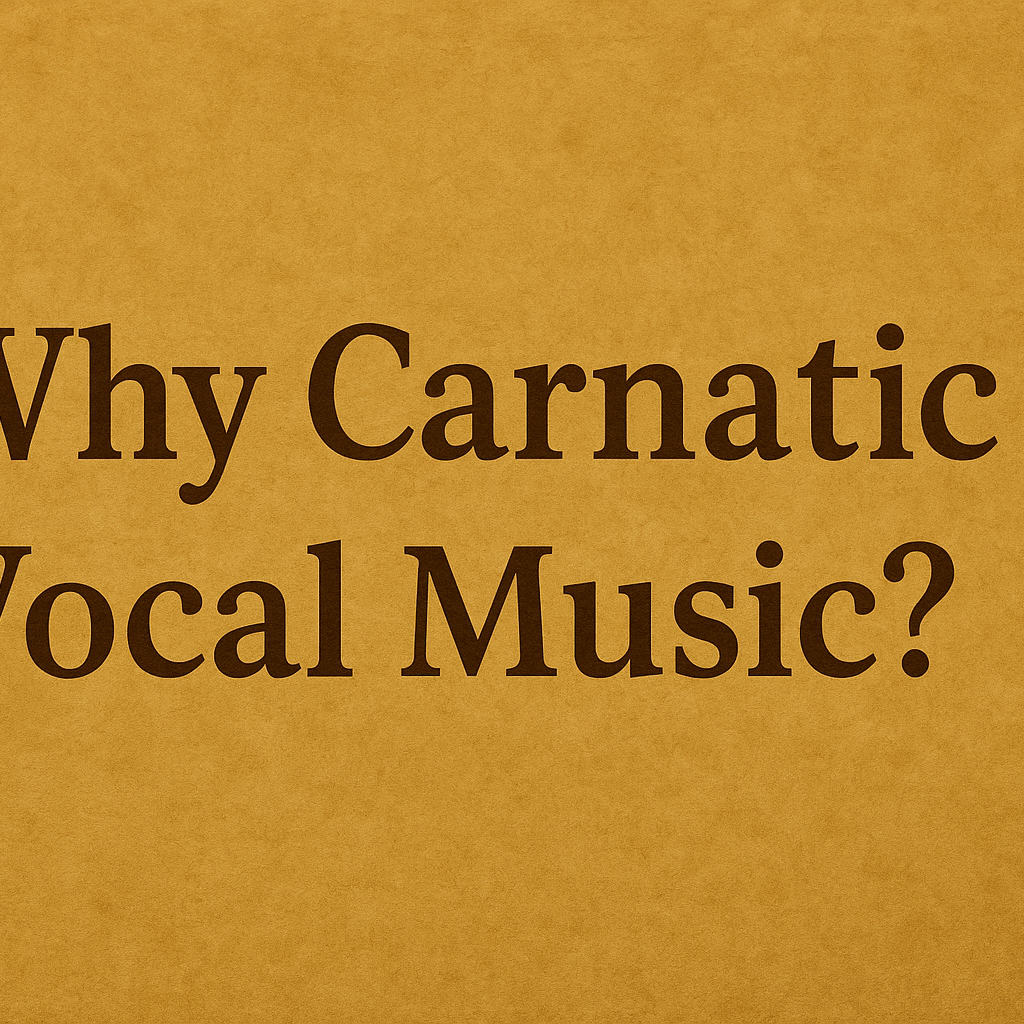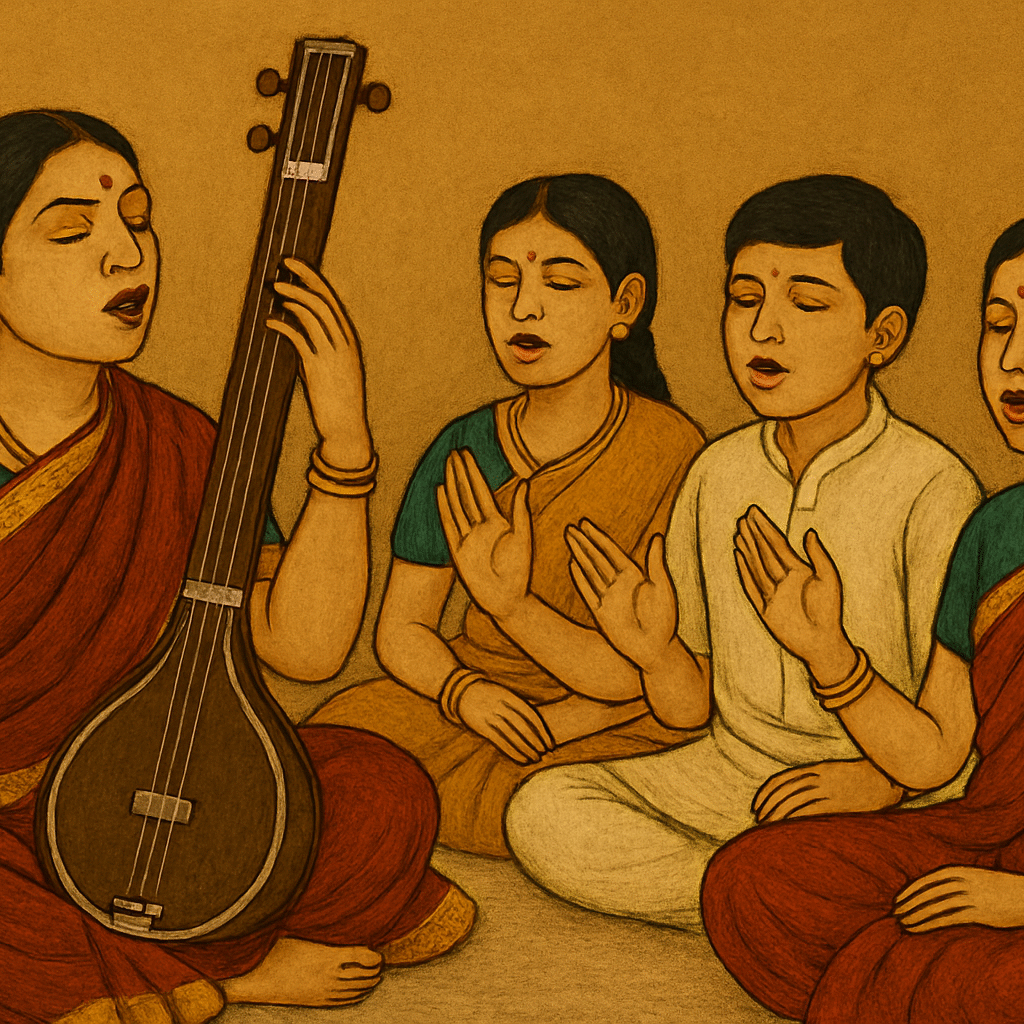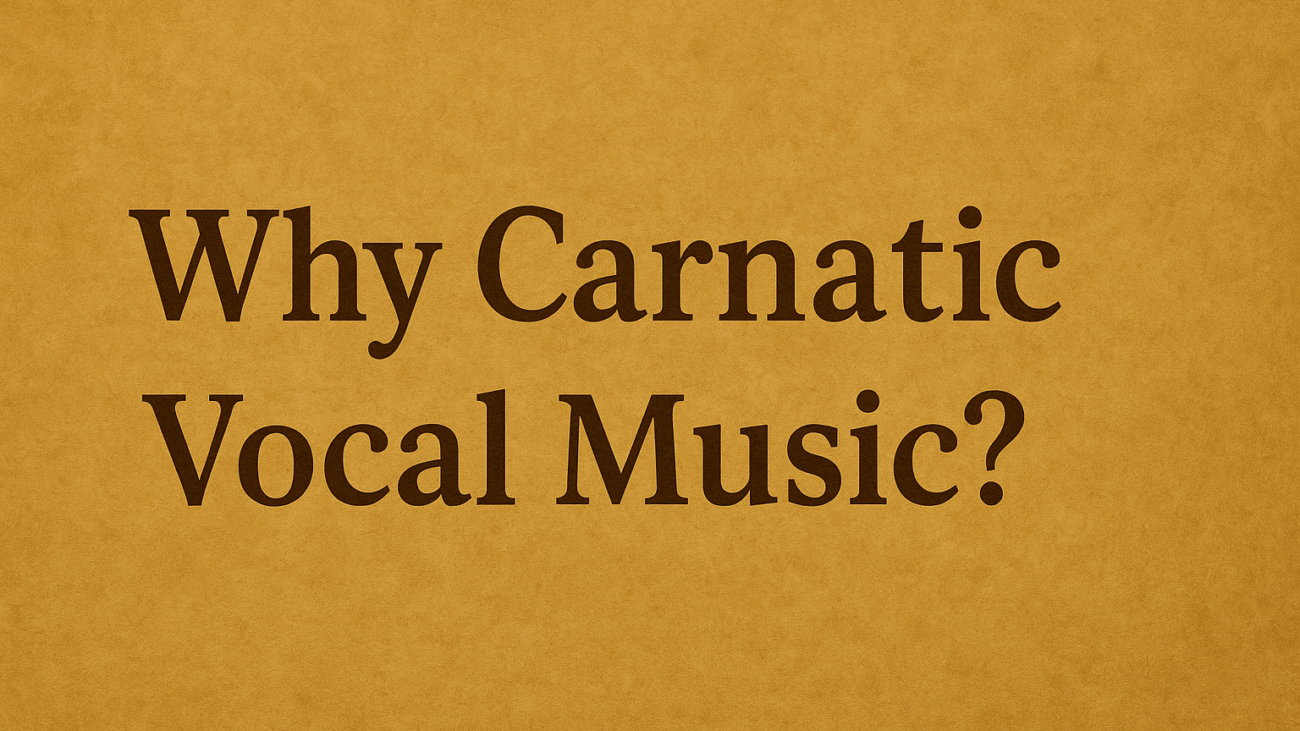Discovering the Heartbeat of South Indian Classical Tradition
Have you ever asked yourself why people devote their lives to mastering Carnatic vocal music? Or why, even in our fast-paced digital world, this centuries-old art form continues to thrive?
The answer is simple: Carnatic vocal music is more than music. It’s a spiritual practice, a mental discipline, and a living tradition passed down through generations.
In this post, we explore the many reasons why Carnatic vocal music matters — and why it might just be the soul-nourishing experience you didn’t know you were missing.

🎶 1. A Deep Connection to Heritage
Carnatic vocal music is not just about melodies and ragas — it’s about preserving a cultural legacy.
Originating in ancient temples and courts of South India, this music is steeped in devotion, philosophy, and tradition. Every kriti (composition) tells a story — about gods, about life, about human emotion. Singing Carnatic music is like having a conversation with history.
Whether you’re Tamil, Telugu, Kannada, or Malayalam speaking, Carnatic music connects you to your linguistic and cultural roots in a deeply meaningful way.
🧘 2. A Path to Discipline and Focus
If you’ve ever watched a Carnatic vocalist perform, you know it takes incredible concentration, breath control, and mental agility. Practicing Carnatic music trains your brain in areas like:
- Pitch accuracy
- Rhythmic complexity
- Memory retention
- Improvisation (manodharma)
It’s no surprise that many top academic performers, scientists, and engineers in India also have a background in Carnatic music. It sharpens the mind, strengthens patience, and teaches perseverance.
🙏 3. A Spiritual Journey Through Sound
One of the most beautiful reasons to pursue Carnatic vocal music is its deeply spiritual nature.
Most compositions are devotional, often written by saint-poets like Tyagaraja, Muthuswami Dikshitar, and Shyama Shastri. Their songs are musical prayers — filled with longing, gratitude, and surrender.
When you sing or listen to Carnatic music, you’re not just enjoying art — you’re engaging in a form of meditation. It’s a way to connect with something larger than yourself.
🌍 4. A Living, Evolving Art Form
While Carnatic vocal music is rooted in tradition, it’s far from static. Today, you’ll find:
- Young artists innovating within traditional boundaries
- Collaborations with jazz, electronic, and world music
- Global concerts and online lessons, making it accessible from anywhere
This balance of tradition and innovation keeps the art form alive and relevant.
👶 5. Great for Kids (and Adults Too!)
Learning Carnatic music at a young age can benefit children in incredible ways:
- Boosts confidence and public speaking
- Encourages discipline and routine
- Improves listening skills and memory
- Builds a deep sense of identity and belonging
And if you’re an adult thinking, “Am I too old to start?” — the answer is no. Carnatic music welcomes learners of all ages. It’s never too late to train your voice and nourish your soul.

🎤 6. Vocal Power and Versatility
Even if you don’t want to become a professional Carnatic singer, learning the style transforms your vocal ability. You’ll gain:
- Stronger vocal range
- Control over microtones (gamakas)
- Improved breath management
- Enhanced ear training
This makes Carnatic vocal training a great foundation for singers in any genre — from film music to fusion and beyond.
💖 Final Thoughts: Why Choose Carnatic Vocal Music?
Carnatic vocal music offers a rich blend of structure and soul, science and emotion, individual expression and shared tradition.
Whether you’re singing a simple varnam or diving into a complex ragam-tanam-pallavi, you’re tapping into an art form that’s been refined over centuries, and still speaks to the heart today.
💬 What’s Your Reason?
Are you already learning Carnatic music? Or are you thinking about starting?
Tell us in the comments below:
What draws you to Carnatic vocal music? 🎵
And if you found this post helpful, please share it with a fellow music lover, or explore more on our guide to starting Carnatic music as an adult.

